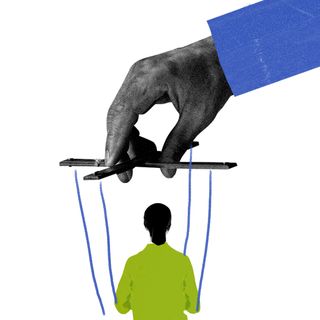The ability to balance one’s body on one leg has been known to be a marker of good health for a while. A new study confirmed this when it found that people who couldn’t balance for 10 seconds were twice as likely to die within the next 10 years.
While this finding may sound suspiciously like a spammy chain email from the early aughts, there is apparently some truth to this, although no definitive causation has been proven yet. According to the research, published in the British Journal of Sports Medicine, people who couldn’t maintain their balance for 10 seconds were associated with higher mortality from any cause, leading researchers to call for the balance test to be made part of routine health screenings.
The study was the first of its kind, carried out over a 12-year-period — with 1,702 people between the ages of 51 and 75 being observed from 2008 all the way until 2020. Participants were asked to keep the front of one foot on the other leg while keeping their arms by their sides and looking straight ahead. They were allowed up to three attempts on either foot.
“After accounting for age, sex, and underlying conditions, an inability to stand unsupported on one leg for 10 seconds was associated with an 84% heightened risk of death from any cause,” The Guardian reported. Results showed that 123 people died over the next few years, and 21% of participants failed the balance test.
Related on The Swaddle:
The Health Effects of Slouching Range from Acidity to Low Sex Drive
While this study was reportedly the first to comprehensively look at the link between balance and mortality, it adds weight to previous research on how balance is a marker of good health in general.
Moreover, experts have previously suggested that practicing balance can be good for us. “Every time you practice the one-leg stance, it is an opportunity to recalibrate your brain, forming new connections and strengthening the coordination between your ears, eyes, joints, and muscles,” Dr. Michael Mosley, a medical doctor and health writer, told the BBC.
Mosley added that in the 90s, researchers conducted three tests on 2,760 people in their 50s — their grip, how many times they could stand upright from a seated position in one minute, and their balance on one leg with their eyes closed. The balance test came out on top as the strongest predictor of health — 13 years after the experiment, those who couldn’t balance for more than two seconds were three times more likely to have died.
Further, improving balance in this way is also linked to fewer falls — which, in turn, are linked to high mortality rates. There is a charming simplicity to the idea — more balance, literally, leads to a better quality of life — and, perhaps, even a longer one.




